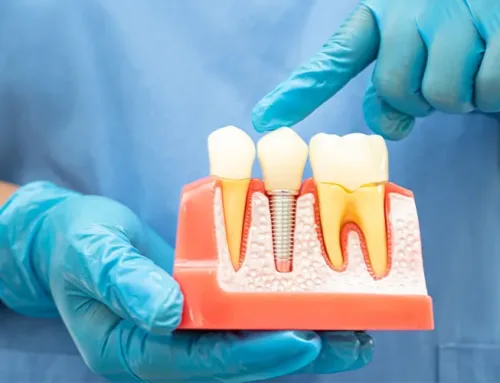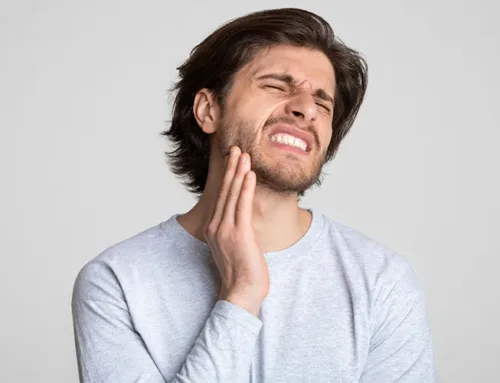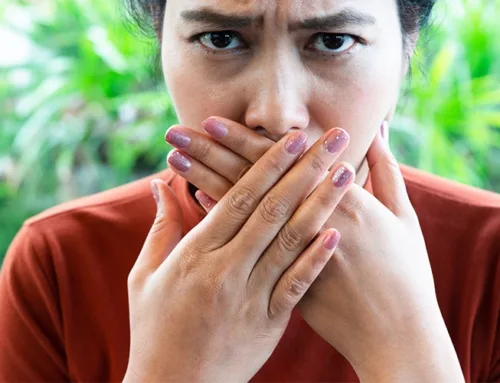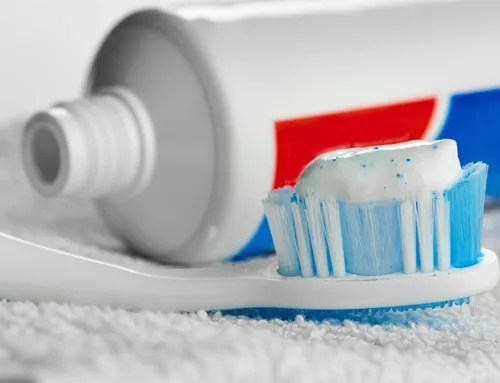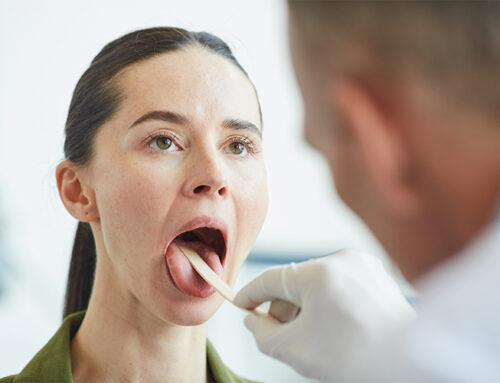Get Ready to Say ‘Ahh’: The Ultimate Guide to Mouthwash for a Healthier Smile!
June 6, 2023
Swish, swish, swish, burn. Ouch! While the burning sensation of a mouthwash rinse can have us second-guessing our choice to add it into our daily routine, the benefits it provides are way beyond just freshening up that horrid morning breath. In this ultimate guide to mouthwash for a healthier smile, we’ll explore the what, how, and why behind the oral rinse, including what exactly it is, how it works, and what types are available. Plus, we’ll take a deep dive into the benefits it offers, and even explain how to use it properly, so you don’t run into its downsides. Are you ready to say ‘ahh’ with confidence and a healthier smile? Read on to learn everything you need to know about mouthwash.
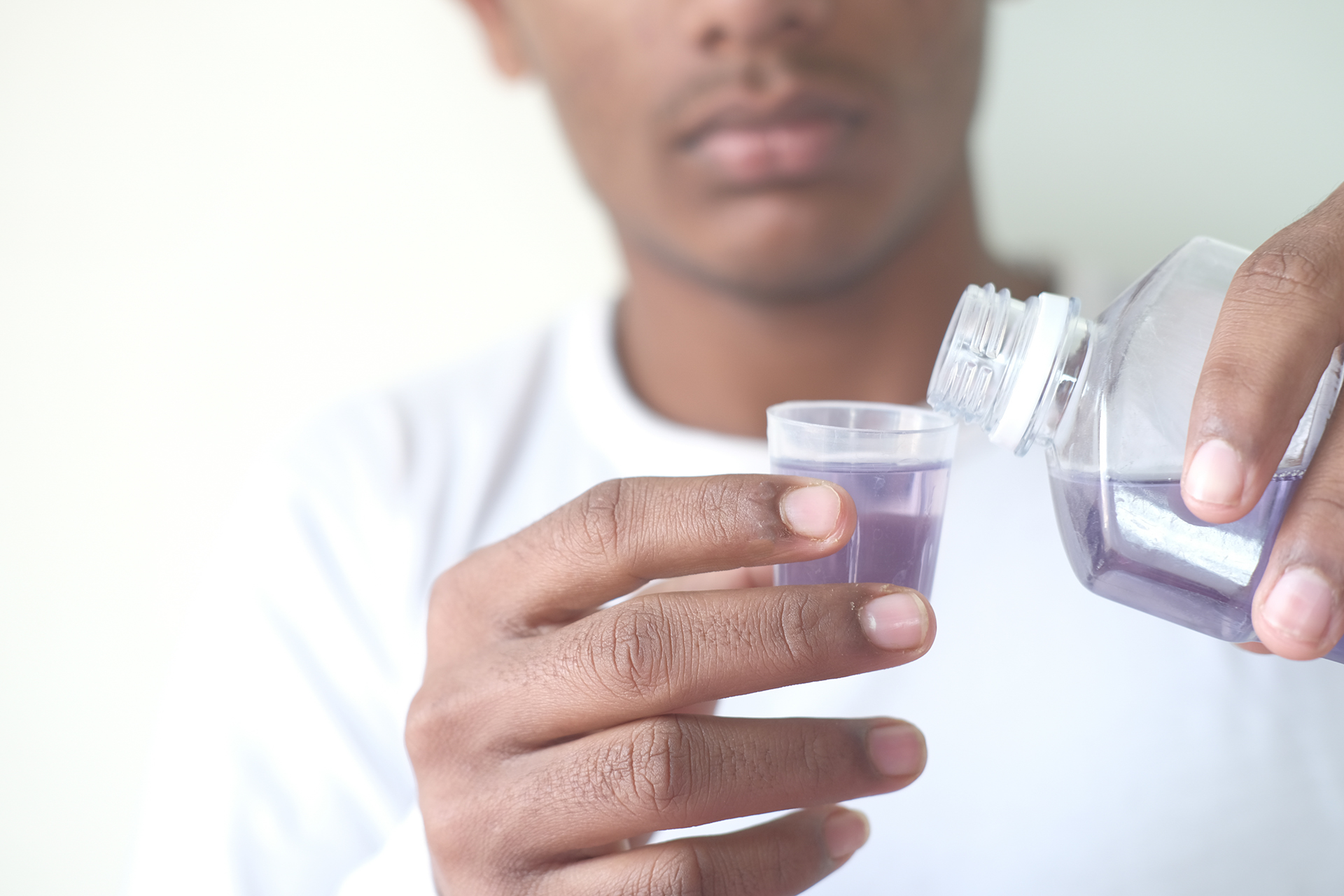
What Is Mouthwash, and How Does It Work?
Also known as an oral rinse or mouth rinse, mouthwash is a liquid solution designed to be held and swished in the mouth for a minimum of 30-seconds, once or twice a day, and then spat out. The general purpose of mouthwash is to do any or a combination of the following: kill off bacteria, reduce plaque buildup, fight against bad breath, and strengthen your tooth enamel while preventing tooth decay by remineralizing your teeth. Mouthwash works by reaching areas that your toothbrush and floss may miss, such as between your teeth and under your gums. It also helps rinse away food particles and debris that can cause cavities and infections.
6 Types of Mouthwash: Finding The Right One For Your Unique Oral Health Needs
Walking down the dental isle can be an intimidating experience, as the sheer assortment of colorful mouthwash shades can have you wondering which to pick. Rather than looking at the colors, focus on the ingredients and wording used to describe each rinse, as not all mouthwashes are the same.
- Fluoride mouthwash. This type of mouthwash contains fluoride, a mineral that strengthens your tooth enamel and prevents cavities. Fluoride mouthwash is especially helpful if you have a high risk of tooth decay or if you live in an area with low-fluoride water. However, fluoride mouthwash should not be used by children under 6 years old or by people who are allergic to fluoride.
- Antiseptic/therapeutic mouthwash. This type of mouthwash contains ingredients such as alcohol, chlorhexidine, or cetylpyridinium chloride that kill bacteria and reduce plaque and gingivitis. Antiseptic mouthwash is useful if you have bad breath, gum disease, or oral infections. However, antiseptic mouthwash can cause side effects such as dry mouth, staining, or altered taste.
- Cosmetic mouthwash. This type of mouthwash does not have any therapeutic benefits, but rather aims to improve the appearance and smell of your mouth. Cosmetic mouthwash may contain ingredients such as mint, menthol, or hydrogen peroxide that whiten your teeth and mask bad odors. Cosmetic mouthwash is suitable if you want a quick boost of freshness before a date or a meeting. However, cosmetic mouthwash does not address the underlying causes of oral problems and should not replace regular brushing and flossing.
- Natural mouthwash. This type of mouthwash is made from natural ingredients such as herbs, oils, or extracts that have antibacterial, anti-inflammatory, or soothing properties. Natural mouthwash may appeal to you if you prefer organic, eco-friendly products, or if you have sensitive teeth or gums. However, natural mouthwash may not be as effective as other types of mouthwash and may not have enough scientific evidence to support its claims.
- Prescription mouthwash. This type of mouthwash is prescribed by your dentist for specific oral conditions that require special treatment. Prescription mouthwash may contain stronger concentrations of active ingredients or medications that are not available over-the-counter. Prescription mouthwash is necessary if you have severe gum disease, oral ulcers, or fungal infections. However, prescription mouthwash should only be used as directed by your dentist and for a limited period of time.
- Non-alcoholic mouthwash is an oral rinse that doesn’t include alcohol in its formulation. Manufacturers often add alcohol to mouthwash to improve its taste and antibacterial effects. However, alcohol can cause dryness, irritation, and a burning sensation for some users. For people with sensitive teeth, gums, or mouth tissues, or those who have personal or medical reasons to avoid alcohol, non-alcoholic mouthwash is a great alternative.
How Fluoride Mouthwash Helps Create a Healthier Smile: The Benefits of Use
To get the most out of your mouthwash, you need to be using it regularly to get the benefits of a healthier smile. Here is how it can help you once you work it into your daily routine.
- It Freshens Breath. Mouthwash freshens breath by killing the bacteria that cause bad breath. When you eat, food particles get stuck in and around your teeth. Over time, bacteria breaks down the food particles, releasing an unpleasant odor. Mouthwash contains ingredients like alcohol, antiseptics, and essential oils like peppermint and eucalyptus to neutralize odors. It’s important to note that while mouthwash can temporarily mask bad breath, it’s not a substitute for proper oral hygiene, such as brushing and flossing regularly.
- It Combats Cavities & Can Prevent Oral Infections. Likewise, it can help combat cavity development and prevent oral infections by killing harmful bacteria that produces acid and plaque. When bacteria feeds on the debris and food particles in your mouth, it produces acids as a byproduct, which erode the protective enamel coating on your teeth. This is what makes your teeth susceptible to the development of cavities and oral infections.
- Can Help Prevent Gum Disease. Mouthwash can be helpful in preventing gum disease by reducing the number of bacteria in the mouth, which can lead to the development of plaque and tartar. However, it must be used in combination with brushing twice a day, and flossing once a day.
- May Whiten Teeth. Mouthwash can help to whiten teeth by removing surface stains caused by food and drinks. However, it is critical to note that mouthwash cannot change the natural color of your teeth or remove deep-set stains. To get the best results, choose a mouthwash that contains hydrogen peroxide or sodium chlorite, both of which have been clinically proven to whiten teeth.
- It Strengthens Tooth Enamel. Fluoride mouthwash helps to strengthen tooth enamel and prevent tooth decay. Fluoride is a mineral that helps to repair damage to the enamel by remineralizing the teeth.
- It Soothes Mouth Sores. Mouthwash can also help to soothe mouth sores and ulcers. The antiseptic properties of mouthwash help to kill the bacteria that cause these painful sores, while the alcohol content helps to numb the area and reduce pain. It’s important to note that while mouthwash can help to alleviate symptoms, it’s not a substitute for proper medical treatment.
While mouthwash can be helpful, it is not a substitute for proper oral hygiene practices such as brushing and flossing regularly.
How to Properly Use & Add Mouthwash Into Your Daily Oral Hygiene Routine
While it may seem extremely simple and self-explanatory on how to use mouthwash, using it in the correct order as part of your daily oral hygiene routine is essential for getting the most out of it.
- The first step here is to brush and floss your teeth thoroughly. Keep in mind that some mouthwashes may require you to wait a few minutes before or after using them, so you’ll want to read the instructions carefully first.
- Grab your mouthwash rinse and take the cap off of it. Look on the inside of the cap for measurement lines. Measure out 20 ml of the liquid, swish it around in your mouth for 30 to 60 seconds. Make sure to cover all areas of your mouth, and if you can, gargle with it.
- Rinse your mouth with water after using mouthwash. This will help remove any residue or excess mouthwash from your mouth and prevent dryness or irritation.
- You should avoid eating or drinking anything for at least 30 minutes after using mouthwash to let it work effectively.
Are There Any Downsides to Using Mouthwash: Potential Side Effects
While the benefits of mouthwash are numerous, there are some downsides to swishing.
- If you eat too soon, it can alter your sense of taste, making drinks and food less enjoyable.
- It can irritate your gums and gums, especially if you have sensitive teeth or oral sores in the mouth like canker sores.
- If the mouthwash isn’t right for you, it can kill off too many beneficial bacteria, disrupting the natural balance of your oral microbiome, which can increase your risk of halitosis or infections.
- Mouthwash can mask underlying dental problems, such as tooth decay or hum disease that needs professional treatment.
- Mouthwashes that contain alcohol can dry out the mouth by reducing saliva production. Saliva is essential for keeping the mouth moist and preventing bacterial growth. When the mouth is dry, it can cause discomfort, bad breath, tooth decay and gum disease.
Always use mouthwash as directed by our dentists, and in step with the instructions on the back of the bottle.
Conclusion: How Mouthwash Creates a Healthier Smile
Mouthwash is an effective way to improve oral hygiene and prevent dental concerns. It can reduce plaque, bacteria, and bad breath, as well as protect the enamel and gums. By using mouthwash regularly, you can create a healthier smile that lasts longer and looks better. If you experience any side effects from using mouthwash, let us know, and we can develop a plan that works best for you and your oral health needs. Have any questions about which mouthwash you should be using? Give us a call at: (813) 333-1922, or send us a message via our contact form. We’re more than happy to answer any questions you have, and can book you in for a consultation to create a tailored treatment that will have you saying “ahh” confidently in no time.




